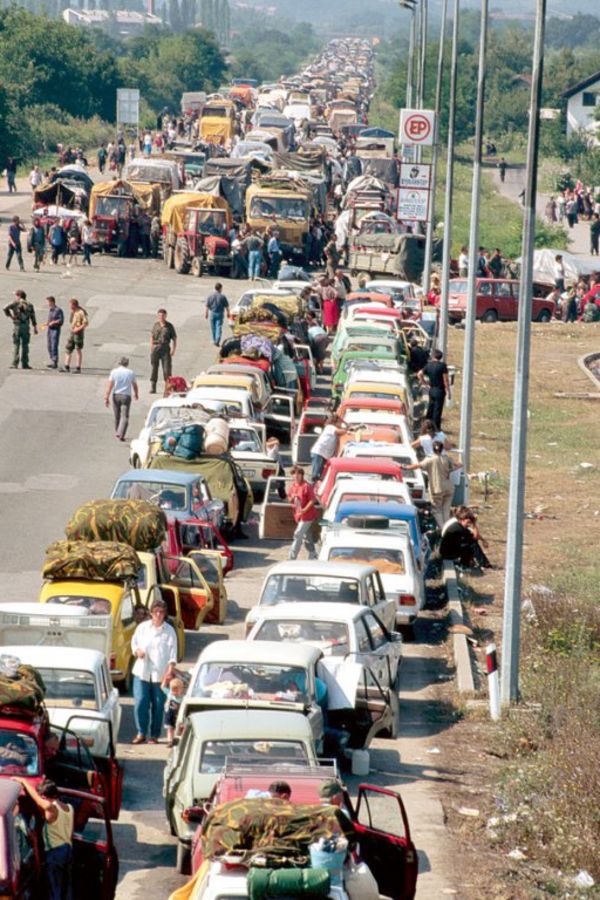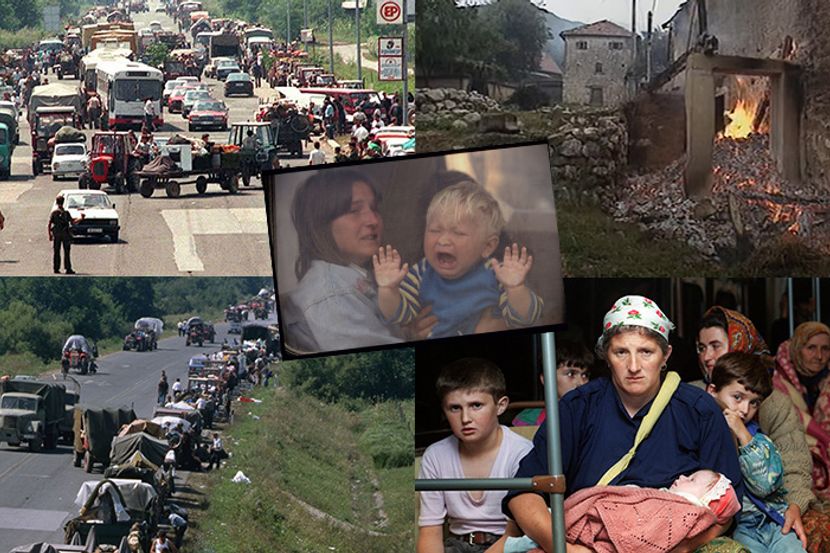
Since 2014 Serbia and Republika Srpska have been jointly marking the anniversaries of the suffering of the Serbian people in the Second World War and in the Croatian military operation "Storm". We are marking the anniversary of "Storm" as the Day of Remembrance for the victims and expelled Serbs.
On August 4, 1995, the armed forces of the Republic of Croatia carried out an aggression against northern Dalmatia, Lika, Kordun and Banija, i.e. the Serbian Autonomous Region of Krajina, as part of the then Republic of Serbian Krajina. The aggression was carried out despite the fact that the area was under UN protection and that the representatives of the Republic of Serbian Krajina accepted in Geneva and Belgrade the proposal of the International Community on a peaceful solution to the conflict the day before the aggression.
About 200,000 soldiers were engaged against the Krajina Serbs (about 230,000 inhabitants with about 30,000 soldiers), and in a few days of unequal fighting, the resistance of the Serbian Krajina Army was broken, and the people of the western Krajina, more than 220,000, retreated towards Serbia and Republika Srpska.
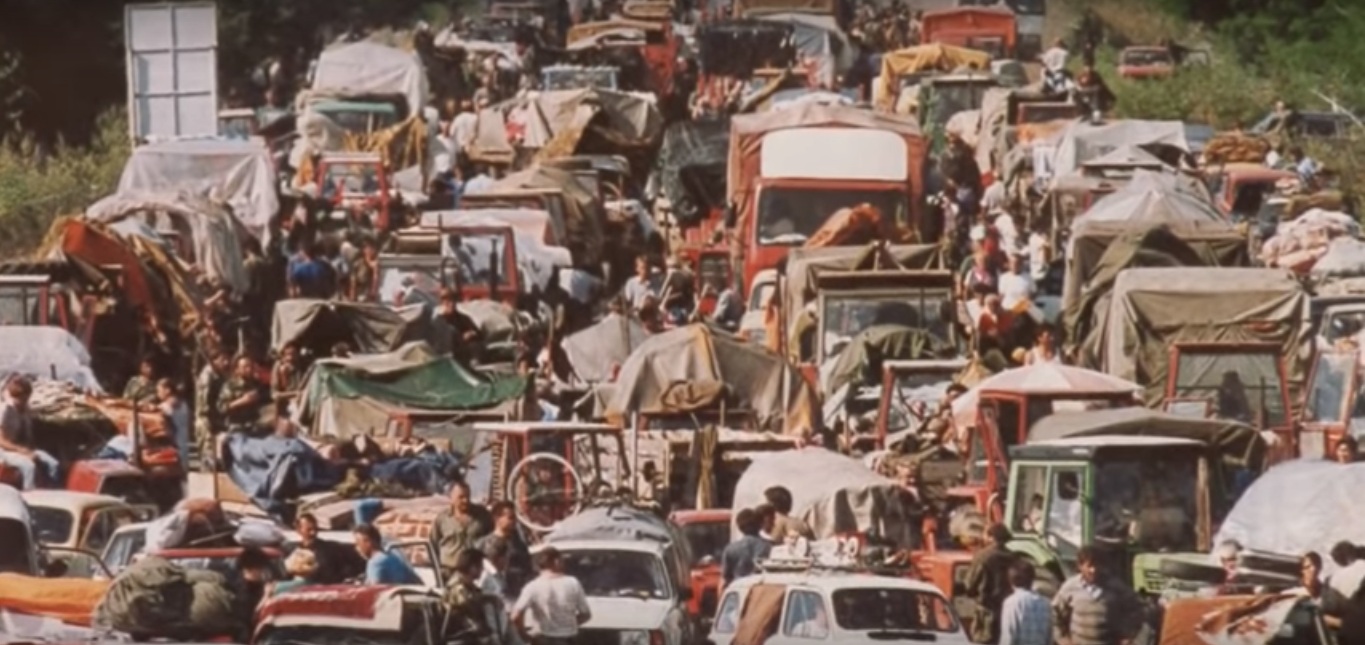
Currently, 1,852 people are on the list of killed and missing Serbs in "Storm", of which 1,200 are civilians. The material damage caused by the "Storm" is of unimaginable proportions. 13,000 buildings, 25,000 houses, 78 churches, 96 museums, 181 cemeteries, 52 health centers, all industrial plants etc. were destroyed.
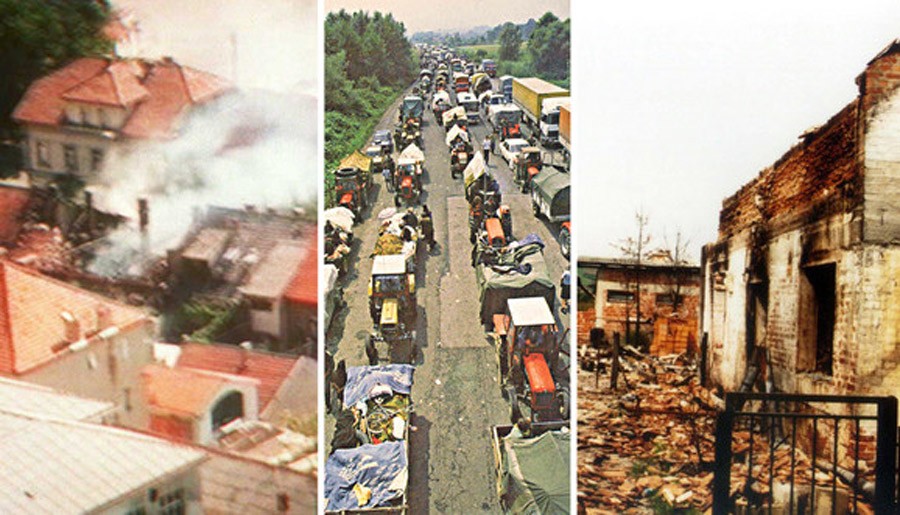
According to the 1991 census, there were 581,663 Serbs living in the Republic of Croatia (12.2% of the total population), while the 2011 census showed that there were 186,633 Serbs in Croatia (4.36% of the total population). Therefore, after the civil war and the mass exodus of the Serbian people, the number of Serbs fell by 2/3.
Crimes against the Serbian people at the end of the 20th century cannot be viewed outside the context of crimes and genocide from the period of the Second World War. Today, almost no one in Europe and the world talks about the genocide of the Serbian people on the territory of the Nazi creation of the Independent State of Croatia in the Second World War, and the horrific story about the Jasenovac concentration camp is shrouded in silence. No one from the Croatian military and political leadership was held responsible before the International Criminal Tribunal for the former Yugoslavia for the expulsion of almost a quarter of a million Serbs (the sum of those expelled in "Storm" and "Flash") and the killing of a large number of civilians and prisoners.
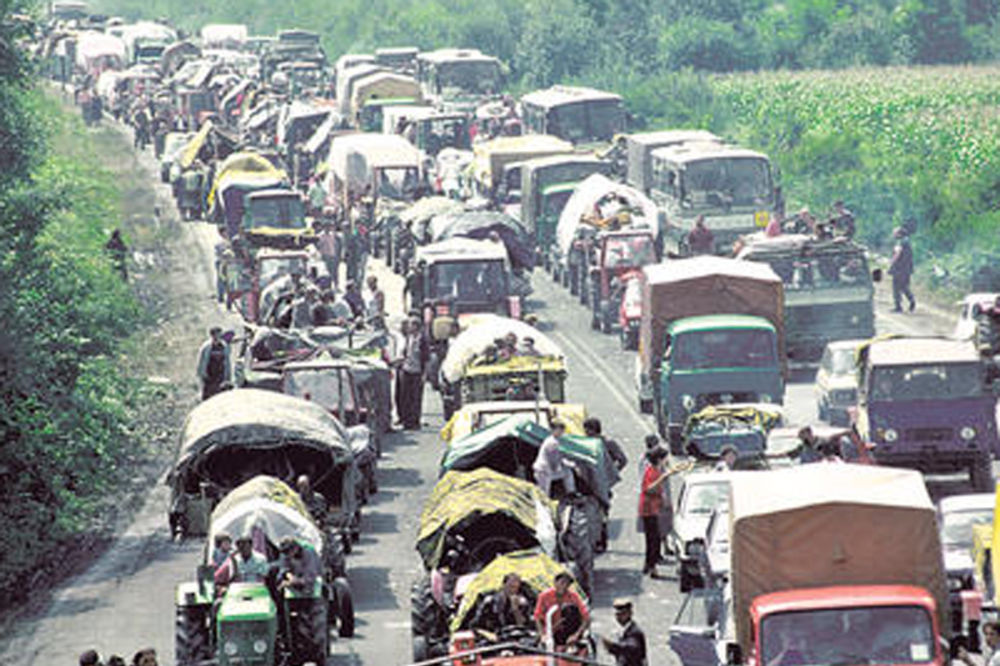
"Storm" is one of the greatest crimes of ethnic cleansing in the world after the Second World War, with more than 220,000 expelled. Serbia has never forced anyone to admit genocide, but only to show reverence for Serbian victims and not to celebrate over the graves of our compatriots. Serbia and Republika Srpska will never celebrate the tragedy of the Serbian people, the killing of Serbian civilians and children.
The presence of representatives of the international community and the diplomatic corps at the Croatian "celebrations" of the anniversary of the "Storm" action is incomprehensible, because those present are participating in the celebration of the anniversary of ethnic cleansing. Serbs who remain in Croatia are still often treated as beings of a lower order (they are denied the right to language, culture, economic progress and a dignified life). Ustasha values and achievements are still widely celebrated in Croatia. Peace is the most important for the Serbian people and that is why Serbia does everything not to respond to numerous and frequent provocative messages from the region. Serbia will never call for new conflicts, because it wants to develop in cooperation with everyone in the region, but it is obliged to remember and not to be silent.
